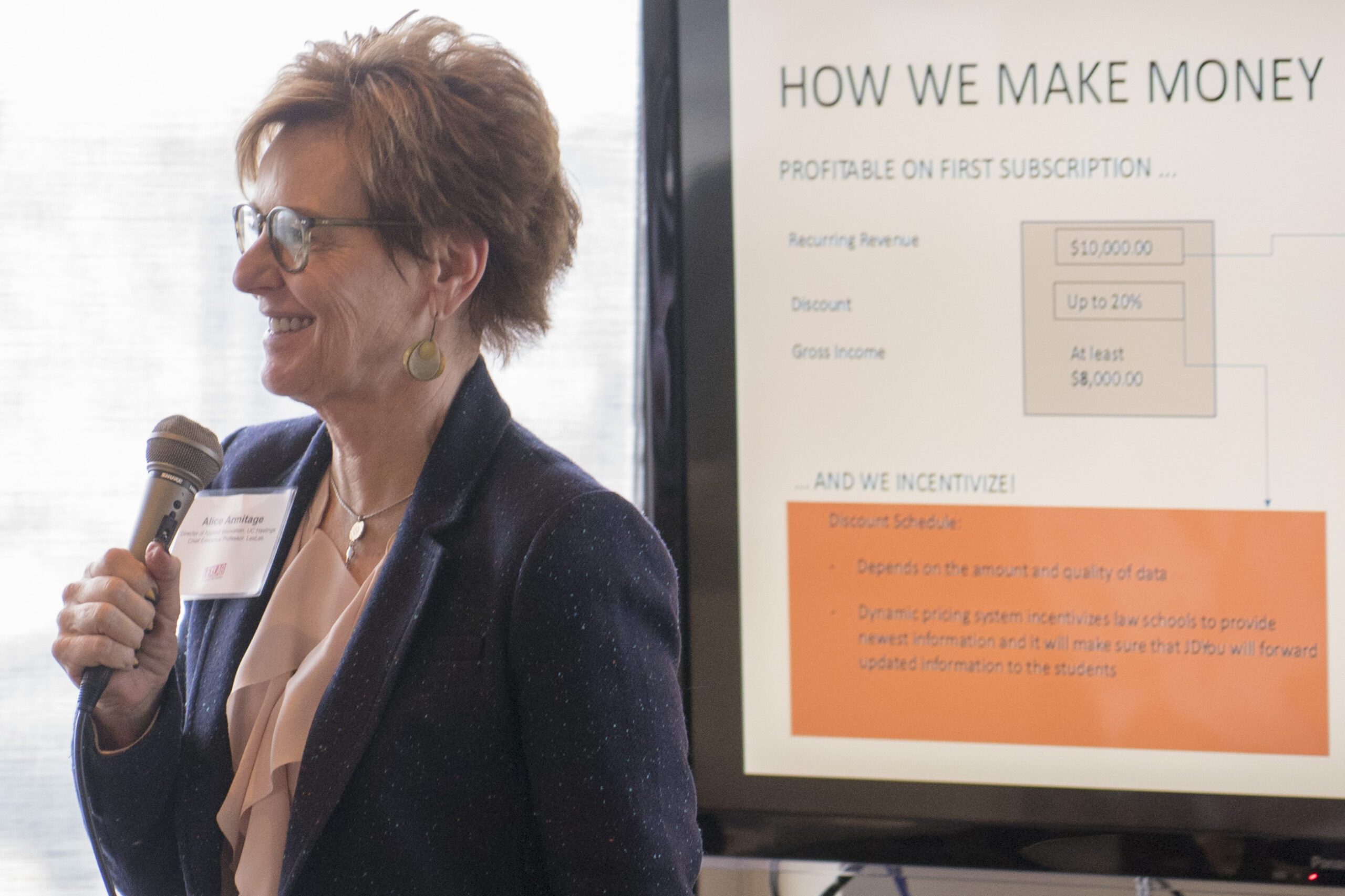Students Pitch Innovative Ideas in Legal Tech Startup Course
As technology revolutionizes the legal industry—a trend that has gathered steam during the pandemic—an innovative UC Law SF collaboration is connecting students with Silicon Valley companies at the forefront.
Professor and Director of Applied Innovation Alice Armitage offers “Building a Legal Tech Startup,” a course in which upper-level students learn design thinking and work in teams to innovate within the legal industry. Students are required to develop a startup idea and pitch it to a group of judges during a Pitch Competition at the end of the semester.
In that process, students often receive mentorship from entrepreneurs in UC Law SF’ unique accelerator program, which welcomed its fourth cohort of legal tech startups in Spring 2021. The fledgling companies in the accelerator are focused on, among other things, helping consumers navigate the small claims process, automating the collection and consolidation of texts and emails between two people for collecting evidence, or providing a cybersecurity tool that law firms can use to protect their client files.
At the end of the semester, on the same day the students pitch their startup ideas, the startup entrepreneurs pitch their businesses to potential investors in an event known as Demo Day. Both these April 21 events are open to the public.
“It’s been very exciting. Students are exposed to the entrepreneurial mindset. If you’re forced to think like an entrepreneur for 13 weeks you will be a much better startup lawyer,” Armitage said. “Students learn how to create a presentation and learn to think on their feet. It’s unique and something law schools should be doing to make legal education more practical.”
Mohammed Rashik, Class of 2020, is already turning a startup idea into reality thanks to the connections he made at UC Law SF. Armitage introduced him to the person who would be his co-founder. Their startup uses its proprietary technology to comb through consumer complaints to look for patterns of harm and corporate misbehavior. Prominent class action firms have used the new platform to file four lawsuits so far, with another 25 in the investigation stage. The startup receives a percentage of any attorneys’ fees in return.
“The lessons I learned during the class were invaluable,” Rashik said. “Everything was action based – going out and doing customer development, interviewing potential customers, doing the real work of startup. That’s pretty different from what you learn in law school.”
At an accelerator event a few months ago, Rashik met another person who is not only investing in the startup but also bringing complex litigation experience to assist with operations.
Both the course and the accelerator are hosted by LexLab at UC Law SF, an initiative whose mission is to “prepare business-savvy lawyers who will shape the future of the legal profession.” LexLab also develops law and technology curricula and organizes public events addressing timely topics. For example, LexLab has organized panel discussions on California’s new privacy law, the spread of deepfakes, and the State Bar of California’s Access Through Innovation of Legal Services Task Force.
As Chancellor and Dean David Faigman explained in a video about LexLab, the legal industry is changing rapidly and “legal education really needs to anticipate that, become part of that, and to some extent really be at the vanguard of where law practice is going.”
LexLab is also building a pipeline of talent from the law school to the technology industry, Director Drew Amerson said, drawing on the network of UC Law SF alumni living in the Bay Area and an advisory board made up of alumni who work in legal tech. The collaboration not only assists startup founders such as Rashik, but also creates opportunities for students to find internships with companies such as Glassdoor and DocuSign.
“Alice is leading the way,” Amerson said. “Our students don’t have access to this anywhere else. Where they can make those connections, that’s where the real magic happens.”
